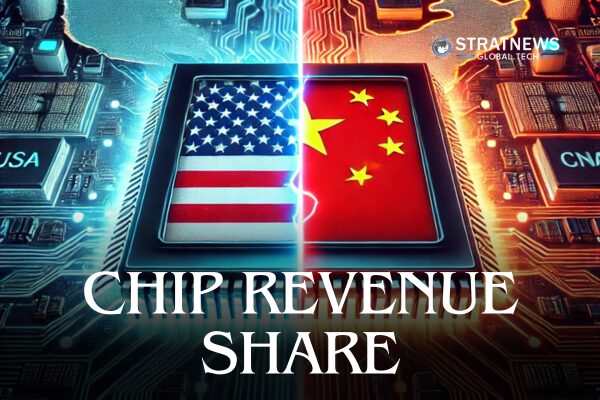Nvidia and AMD to Give US Government 15% of China Chip Sales Revenue
Nvidia and AMD have agreed to hand over 15% of revenue from sales of advanced computer chips to China, including Nvidia’s H20 model, a US official told Reuters on Sunday. The arrangement covers chips designed for artificial intelligence applications and comes as part of new export licence conditions.
Export Restrictions and Licence Approvals on Nvidia and AMD
The administration of US President Donald Trump halted sales of H20 chips to China in April, citing export controls. Last month, Nvidia said US authorities had approved the resumption of sales, and it hoped to begin deliveries soon.
A separate US official confirmed on Friday that the Commerce Department had started issuing licences for the sale of H20 chips to China. According to the Financial Times, the revenue-sharing agreement was a requirement for obtaining export licences, which also cover AMD’s MI308 chips.
Industry and Government Reactions
When asked about the 15% revenue arrangement, Nvidia said in a statement: “We follow rules the US government sets for our participation in worldwide markets.” The company added that it had not shipped H20 chips to China for months but hoped new export rules would allow American firms to remain competitive globally. AMD did not respond to requests for comment.
China is a major market for both companies. Nvidia reported $17 billion in revenue from China in the fiscal year ending 26 January — around 13% of its total. AMD earned $6.2 billion from China in 2024, accounting for 24% of its total revenue.
Debate Over National Security and Policy
Geoff Gertz, senior fellow at the Center for New American Security, questioned the logic of the arrangement: “Either selling H20 chips to China is a national security risk, in which case we shouldn’t be doing it, or it’s not, in which case, why impose this penalty?”
US Commerce Secretary Howard Lutnick recently described the H20 as Nvidia’s “fourth-best chip” and said its sale was part of wider negotiations with China over rare earths. He argued that keeping Chinese firms reliant on American technology — even if not the most advanced — was in the US interest.
A US official told Reuters that the administration did not consider H20 sales a national security risk but did not specify when or how the revenue-sharing arrangement would take effect.
Former US Commerce Department adviser Alasdair Phillips-Robins criticised the move, saying: “If this reporting is accurate, it suggests the administration is trading away national security protections for revenue for the Treasury.”
with inputs from Reuters


